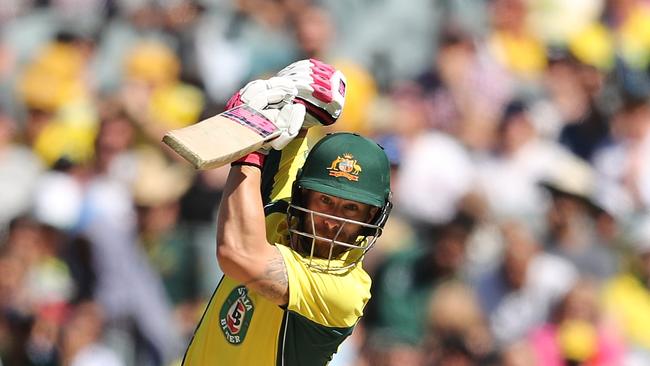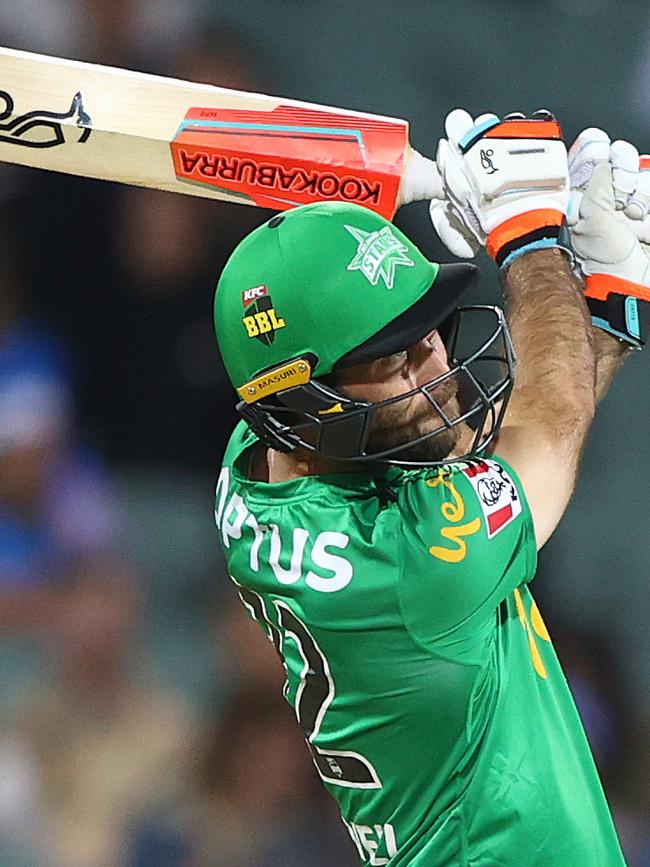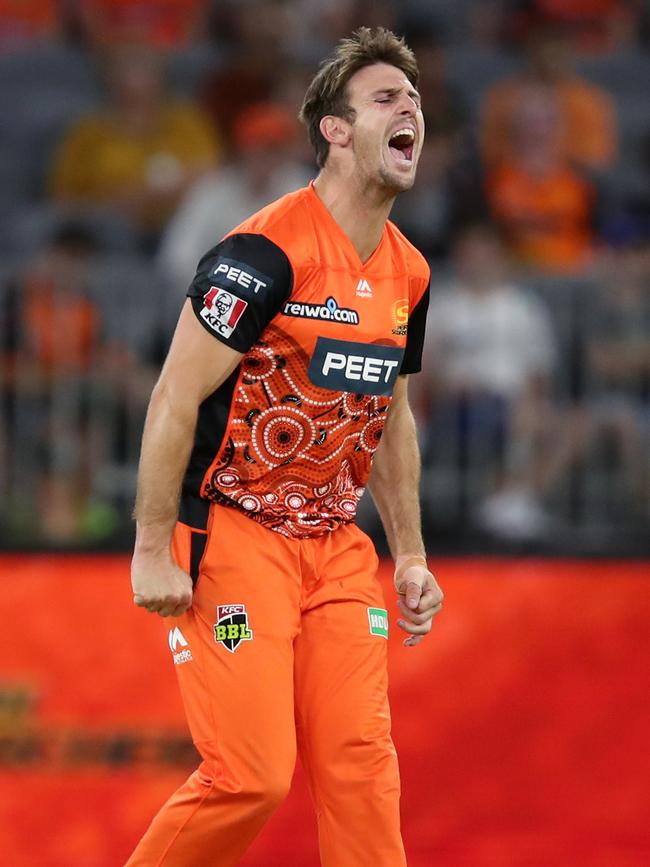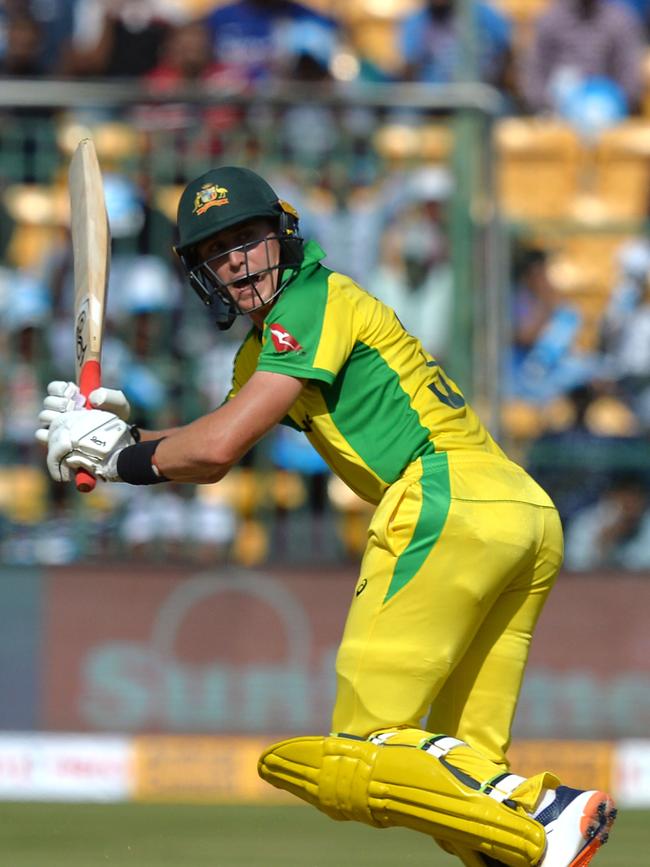Ian Chappell: The key decisions Australia must make on its one-day international tour of South Africa
Ian Chappell has given a resounding tick to the one-day international squad named to tour South Africa this month, praising the return of Glenn Maxwell. But what did the Aussie great make of the other changes?

Cricket
Don't miss out on the headlines from Cricket. Followed categories will be added to My News.
In the modern 50-over game, a team has to have the capacity to score at least 350 to compete with the strongest opposition.
And they need to be capable of achieving this lofty level whether setting the target or attempting to chase one down.
With that in mind, it’s worth giving the once-over to the Australian ODI squad selected to tour South Africa later this month.
Two selections of note were the inclusion of Glenn Maxwell and Mitchell Marsh, both returning to the team after recovering from mental health issues and (self-inflicted) injury, respectively.


These two players add enormous firepower to Australia’s middle order and provide the added bonus of bowling some handy overs.
They are two welcome additions to the ODI side.
When you add Maxwell and Marsh to an already potent top order of David Warner, Aaron Finch and Steve Smith, with the explosive keeper Alex Carey following the middle-order pair, you have a side with the capability — if everything goes right — to score at least 350.
MORE SPORT NEWS:
Valentine Holmes opens up on loneliness during New York Jets, NFL switch
UFC heavyweight Justin Tafa reveals why he quit Melbourne Storm to fight
Sachin Tendulkar new Marnus Labuschagne was ‘a bit special’ after watching Ashes debut
Usman Khawaja says BBL needs increased salary cap to improve the competition
After his recent success in the ODI series against India, Marnus Labuschagne has retained his place in the squad.
However the ebullient right-hand batsman now appears to be in a battle with Matthew Wade for the No. 4 spot in the order
Wade was included on the score of his rattling good form in the BBL.
I would favour Labuschagne for the critical No. 4 spot because in addition to posting scores in the vicinity of 350 regularly, a team also needs to be able to cobble together winning totals when conditions are difficult or things go astray from the outset.
Labuschagne is better equipped than Wade to perform this role. If things go well early on and Labuschagne’s not required to bat, at least he provides another bowling option with his leg spin.
In the same situation, Wade becomes superfluous firepower and is purely a specialist fielder. Labuschagne is also a far better player of spin, which often proves to be crucial in the middle overs of an ODI.
The perfect balance for an ODI team is four top-order batsmen, two all-rounders, a keeper who can score quickly and four specialist bowlers. The Australian squad to tour South Africa — if they select Labuschagne at four — fits the bill perfectly.
The return of Maxwell and Marsh is a testament to their talent, but also a gamble.
Maxwell had a poor World Cup before taking a break from the game. Some of his problems stemmed from an uncertainty against the short-pitched delivery that he says he’s now overcome.


If he’s done the physical work required to alleviate this problem, he could be okay. But if he’s relying purely on being revitalised by taking a break, he’s in for a rude shock.
At times it appears Maxwell’s batting also suffers from having too many options. Often his mind seems to be racing: “I haven’t played a reverse sweep for three balls — I better attempt one now”, rather than concentrating on playing the relevant shot to the next delivery.
He also attempts to hit the ball out of sight at times, rather than being satisfied with just clearing the boundary. On one occasion during my time with the Melbourne Stars, Maxwell suffered a side strain. “Tried to hit one over the stand again, eh Maxi?” I joked.
He just gave a knowing smile and later that night looked intent on trying to clear the mountainous Southern Stand at the MCG.
Like the returning Marsh, Maxwell has benefited from taking on a captaincy role. He appears to be calmer now and the extra responsibility has shown up in the form of a more mature batting approach.
Unlike Maxwell, who thrives on destroying spinners, Marsh has a weakness against the tweakers. This is not unusual for a player weaned on true Perth pitches. In his past five ODI innings — all against England — Marsh was dismissed four times by Adil Rashid and once by Moeen Ali, all in matches played in Australia.
Both players possess prodigious power that allows them to easily clear any boundary. With the emphasis now on six-hitting in short-form cricket, selectors are always going to be tempted by this pair’s power.
If Maxwell and Marsh play to their potential it will pay big dividends for Australian cricket. It will place Australia up there with England and India as the ODI teams most likely to post or chase down huge targets.
